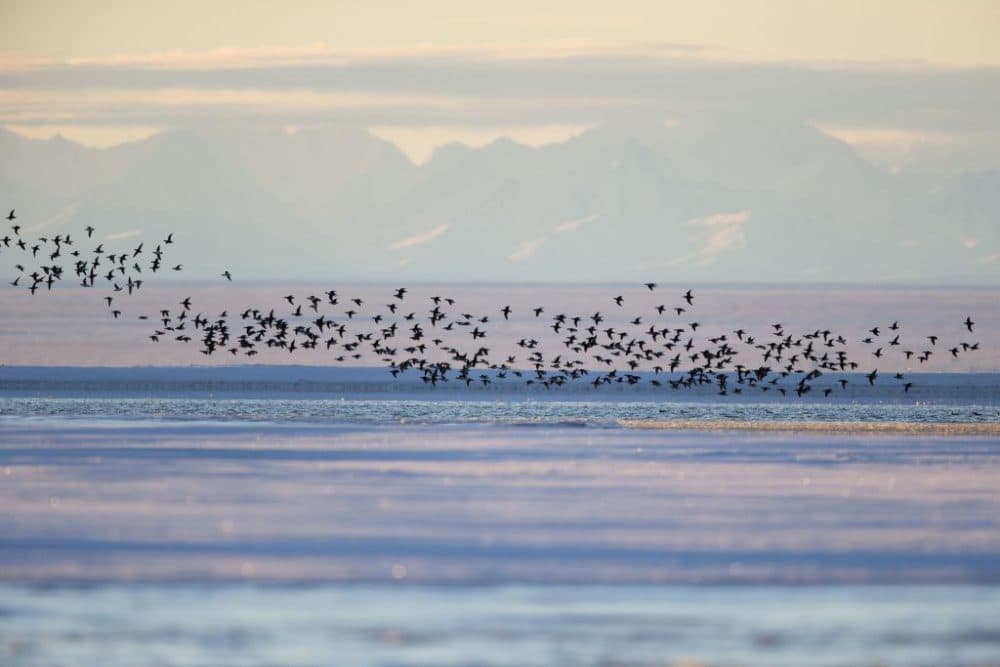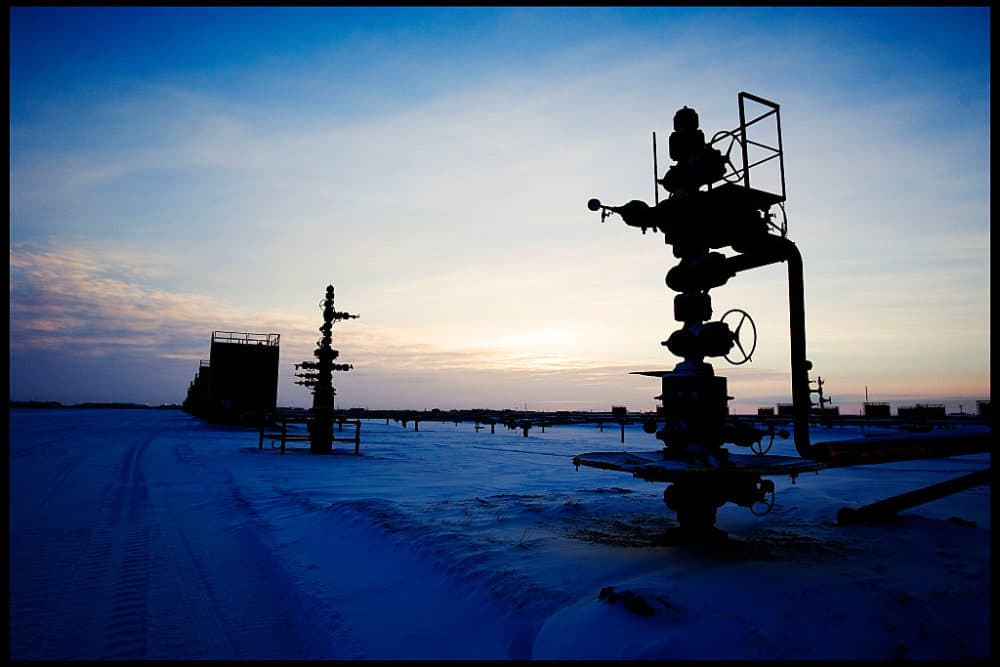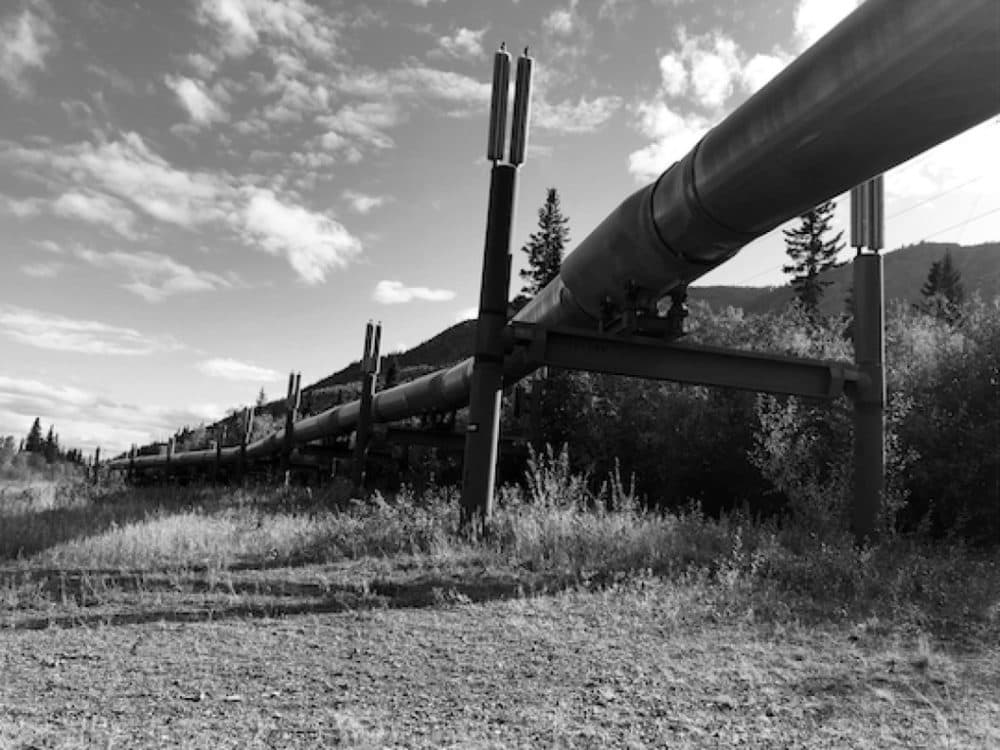Advertisement
Commentary
Does Biden Support Or Oppose Drilling For Oil In Alaska? Yes

Imagine a flight over the coastal plain of Alaska's Arctic National Wildlife Refuge. Below you are herds of caribou, flocks of snow geese and throngs of walruses hauled out on the beaches. Tundra swans and golden eagles cruise over waving grasslands, and snowshoe hares forage among clusters of purple saxifrage. You may well catch sight of polar bears, musk oxen and gray wolves.
What you don't see here, despite the presence of an estimated 10 billion barrels of petroleum below the tundra, are oil wells. In ANWR, America's schizoid relationship with fossil fuels plays out against a backdrop of majestic terrain.
There has been no drilling in ANWR except for a single test well in 1986. And although the Trump administration auctioned off 11 oil leases this past January, the Biden administration suspended them earlier this month, citing possible legal irregularities.
The political risk of blocking drilling in ANWR was tempered by the refusal of all the major banks to finance projects in the Arctic. And the lease auction was a bust, generating only a tiny fraction of the revenue that the Trump administration claimed it would.
But Biden's suspension of the leases, which the industry will challenge in court, was the most recent salvo in a decades-long seesaw battle over the development of ANWR's petroleum.

On one side are the big oil and gas developers, anxious to drain every drop of the state's fossil fuel bounty. They are backed by politicians who crave the vital tax revenues that flow with the oil.
On the other side are the environmentalists, distressed by the impact of oil production on the fragile arctic ecosystem. They are allied with the indigenous Gwich'in, who oppose the desecration of their magnificent ancestral lands.
It's not clear who's winning.
The decarbonization of the economy that Biden is trying to instigate is profoundly at odds with Alaska's economic trajectory and the health of its state budget. The state's popular Permanent Fund, primarily reliant on oil and gas revenues, pays a dividend averaging roughly $1,600 annually to every resident.
Yet Alaska's natural beauty and rich biodiversity, assets of inestimable value, are threatened by the expanding footprint of the fossil fuel industry, whose business model is predicated on the continual discovery and development of new reserves. And because the Arctic is warming faster than the rest of the planet, the impact of climate change on Alaska is immediate and severe.
Advertisement
Alaska may be viewed as a microcosm in which the tensions between economic growth, ecological preservation, fossil fuel exploitation and carbon reduction must eventually be resolved
The conflicts inherent in current energy policy were evident in federal court last month, when the Biden administration argued against environmental groups who had sued to stop a massive drilling plan just to the west of ANWR. This ConocoPhillips project, known as Willow, lies inside the National Petroleum Reserve-Alaska, a 23-million-acre expanse established by President Harding in 1923.
Biden's contradictory policy positions — blocking drilling in ANWR while defending it at Willow — are characteristic of an administration trying to drive an aggressive climate agenda without alienating strategic constituencies and potential political allies. Alaska's senior senator, Lisa Murkowski, is a moderate Republican whose vote could make or break key legislation.
Murkowski was pleased with the administration's stance on the Willow project, which comprises two airstrips, five drill sites, hundreds of miles of pipeline and an oil processing facility. Expected to produce oil for the next 30 years, it will be just as damaging to the climate and the Arctic environment as similar projects within ANWR would be.
Typifying the oil industry's reckless determination to continue its operations in the face of an ever-worsening climate crisis, ConocoPhillips will deploy thermosiphons to refreeze thawing permafrost in the area of Willow's drilling sites to stabilize the ground, and pump up yet more ecocidal hydrocarbons.

So Alaska may be viewed as a microcosm in which the tensions between economic growth, ecological preservation, fossil fuel exploitation and carbon reduction must eventually be resolved. Projects such as Willow will likely be around for decades, but, at least for now, ANWR is protected.
Anyone who's been to Alaska knows its natural grandeur is irreplaceable. Anyone knowledgeable about climate change understands the transition away from fossil fuels must now proceed apace.
And anyone who's thought about the ANWR controversy must realize there's only one rational thing to do with its oil.
Leave it in the ground.
